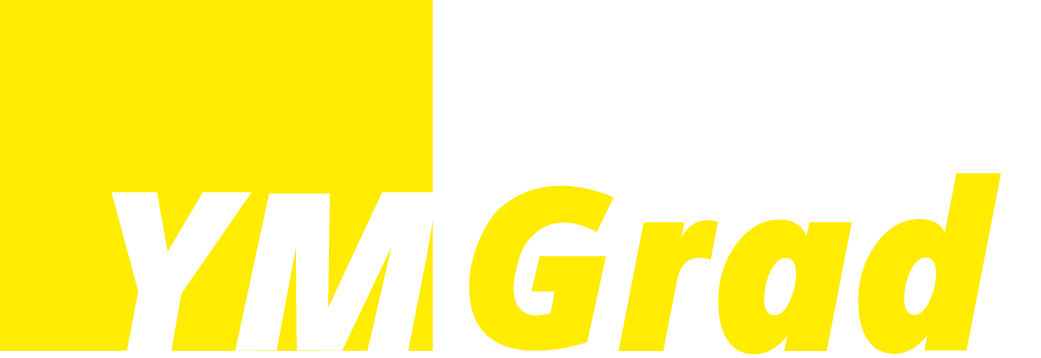Top 8 Universities in France for 2025

.jpg)
France is known for its rich culture and its global community. But did you know that France is one of the top destinations for international students looking to study abroad? Famous for having top-class education and a diverse cultural environment, French public universities are state-funded. Hence, tuition fees are significantly lower than in many other countries. There are numerous scholarships that you can apply for as well, making France an extremely affordable option for studying abroad.
Why Study in France?
Education in France offers a mix of academic excellence, affordability, cultural richness, and global opportunities. Here's why it might be a great choice for you:
- 1
High Quality Education
With a strong focus on research, innovation, and critical thinking, especially in fields like arts, humanities, sciences, and engineering, France is an ideal place to obtain an education abroad.
- 2
Affordable Tuition Fees
Public universities offer extremely low tuition, even for international students, usually around €278/year for Bachelor's and €353/year for Master's, thanks to government subsidies and fee waivers.
- 3
International Environment
France is a top-ranking study destination worldwide for international students. You'll study alongside people from across the globe and gain exposure to diverse perspectives.
- 4
Rich Culture and History
France is the birthplace of philosophy, cinema, art, and fashion. Studying there means being immersed in centuries of cultural heritage.
- 5
Central Location in Europe
France's location allows you to travel easily across Europe; Paris to Berlin, Rome, or Amsterdam is just a few hours away. The Schengen visa also allows free movement in 26 European countries.
- 6
Support for Students
Études en France helps you with admissions, visas, and orientation. Students also benefit from housing subsidies, healthcare, and transportation discounts.
- 7
Safety
Low violent crime rates, an exceptional healthcare system providing emergency services, and well-developed infrastructure make it a very safe and reliable country to study in.
- 8
Post-Study Work Culture
Master’s degree holders from French institutions can apply for a temporary residence permit (APS - “Autorisation Provisoire de Séjour”) which allows them to stay in France for 12 months (extendable once) to look for a job or start a business. If you find a job related to your degree with a certain minimum salary (~1.5x the minimum wage), you can switch to a work permit or apply for a Talent Passport.
Regardless of whether you go for a Bachelor's or a Master's programme, France is an immensely appealing option for international students. In this blog, we will highlight the top 8 universities in France that must be on your list when applying for education abroad.
1. Université PSL
Ranked #24 according to the QS World Ranking (2025), Université PSL is a prestigious public university located in the heart of France's capital, Paris. It offers a diverse range of programmes in all fields of education, like Sciences, Engineering, Humanities, and Arts. The university also provides innumerable supports for international students, including assistance with housing, French language courses, and making it easier to adjust to the French academic life.
Bachelor's Programme Requirements

A secondary school diploma with a GPA of 3.0 - 4.0 is expected, though some programmes may require a higher GPA.
Master's Programme Requirements

A bachelor's degree or equivalent in a related field
Language Requirements

For French-taught programmes: DELF/DALF test for French proficiency with Level B2 or higher OR TCF

For English-taught programmes: IELTS with a score of 6.5 or higher OR TOEFL iBT with a score of 90 minimum
Tuition Fees for International Students

Standard Bachelor’s fees : €175/year + CVEC

Specialized/International Programs : €2,000 to €5,000/year

National Master's Programs: For most Master's degrees recognized as national diplomas, the tuition fee is €250 per year, as set by the French Ministry of Higher Education

Student Life and Campus Contribution (CVEC): All students are required to pay an additional €103 per year for the CVEC, which supports student services and campus life
2. Institut Polytechnique de Paris
Commonly regarded as one of the most acclaimed institutions for engineering and science, Institut Polytechnique de Paris includes 6 of France's top Grandes Écoles (elite engineering and graduate schools). Ranked #46 in the world according to the QS World Ranking (2025), it is located in Palaiseau, southwest of Paris, on the Paris-Saclay plateau, which is becoming a global hub for science and innovation.
Bachelor's Programme Requirements

Excellent academic record coupled with exemplary achievements in intellectual and creative endeavours or extracurricular activities
Master's Programme Requirements

Candidates should hold or be in the process of obtaining a Bachelor's degree equivalent to 180 ECTS credits (typically a three-year undergraduate programme)
Language Requirements

For French-taught programmes: DELF/DALF test for French proficiency with Level B2 or higher

For English-taught programmes: TOEFL iBT score should be at least 90, OR IELTS overall score should be 6.5, with each band being no less than 6
Tuition Fees for International Students

Bachelor's programme fees: € 18,800 per year

Master’s programme fees: € 4,250 - € 7,037
3. Sorbonne University
With its heritage dating back to the year 1150, Sorbonne University is the oldest and one of the most prestigious public research universities in France. It is ranked #63 in the world according to QS World Ranking (2025). It comprises three main faculties, as well as professional schools and institutes. It is the leading university for Arts and Humanities in France, although its research-based curriculum spans across various disciplines like Engineering and Health Sciences.
Bachelor's Programme Requirements

A high school diploma with a competitive GPA, with a minimum of 75% or equivalent
Master's Programme Requirements

A 3-year Bachelor's degree from a recognized institution (minimum 180 ECTS credits) in a discipline related to your Master's
Language Requirements

For French-taught programmes: DELF/DALF test for French proficiency with Level B2 or higher

For English-taught programmes: TOEFL iBT score should be at least 90, OR IELTS overall score should be 6.5 minimum
Tuition Fees for International Students

Bachelor's programme fees: € 2,850 per year

Master’s programme fees: € 3,770 per year
4. Université Paris-Saclay
Ranked #73 according to QS World Ranking (2025), Université Paris-Saclay has a unique cluster model which brings together top universities, grandes écoles, and research institutions under one ecosystem, offering holistic research-intensive programmes. The campuses are spread across the Paris‑Saclay plateau, with a focal point on science, engineering, and technology, as well as humanities and social sciences.
Bachelor's Programme Requirements

A strong secondary school academic transcript with a minimum of 65% aggregate score
Master's Programme Requirements

A 3-year Bachelor's degree from a recognized institution (minimum 180 ECTS credits) in a discipline related to your Master's
Language Requirements

For French-taught programmes: DELF/DALF test for French proficiency with Level B2, some departments may require C1

Recognized proof of English competence, e.g., IELTS ≥ 6.5 or TOEFL iBT ≥ 90, or equivalent as specified by the track
Tuition Fees for International Students

Bachelor's programme fees: €175 per year

Master’s programme fees: € 250 per year
5. École Normale Supérieure de Lyon
École normale supérieure de Lyon (ENS Lyon) is one of France’s four elite “Écoles normales supérieures,” which are some of the leading institutes for higher education in France. Ranked #187 in the world by QS World Ranking (2025), they train top-level researchers, academics, and public servants in both the sciences and the humanities.
Bachelor's Programme Requirements
For international (and EU/EEA) applicants, École normale supérieure de Lyon does not admit students into the first or second year of the Licence (degree programme). All Bachelor‑level admissions are into the third year of the Licence (L3), which is the first year of the ENS Lyon Diploma. The academic prerequisites are :

For entry into L3 (1ʳᵉ année du diplôme) you must have validated 120 ECTS (i.e. completion of L2) or equivalent from your home institution.

International transcripts must clearly show the equivalent of two years of post-secondary education.
Master's Programme Requirements

To enter into the first year of a Master's programme (M1), you must hold a recognised Bachelor's degree (L3, 180 ECTS) or its international equivalent.

For entry into the second year of a Master's programme, you must have validated an M1 (240 ECTS) or equivalent.
Language Requirements

For French-taught programmes: DELF/DALF test for French proficiency with Level B2, some departments may require C1

Recognized proof of English competence, e.g., IELTS ≥ 6.5 or TOEFL iBT ≥ 90, or CEFR B2
Tuition Fees for International Students

Licence (Bachelor's programme) fees: €184 per year

Master’s programme fees: € 243 per year
6. Université Paris 1 Panthéon-Sorbonnee
Located in the heart of Paris, Université Paris 1 Panthéon‑Sorbonne is a public research university ranked #283 according to QS World Ranking (2025). Founded in 1971 from the division of the University of Paris, it inherits centuries of academic tradition dating back to Robert de Sorbon's 13th‑century college.
Bachelor's Programme Requirements

You must hold a high school diploma equivalent to the French baccalauréat (e.g., A-Levels, IB, Abitur, or national secondary school diploma with university eligibility).

Must have excellent academic results, especially in relevant subjects for your major

If you want to apply directly to L2 or L3, you must have earned university credits equivalent to 60/120 ECTS
Master's Programme Requirements

To enter into the first year of a Master's programme (M1), you must hold a recognised Bachelor's degree (L3, 180 ECTS) or its international equivalent, in a discipline related to your chosen major

Some programmes require particular coursework (e.g., a strong economics foundation for a Master's in Economics, prior law studies for Legal tracks)
Language Requirements

For French-taught programmes: DELF/DALF test for French proficiency with Level B2, some departments may require C1

Recognized proof of English competence, e.g., IELTS ≥ 6.5 or TOEFL iBT ≥ 90, or CEFR B2
Tuition Fees for International Students

Bachelor’s fees: €175/year + CVEC

Master's fees: € 250 + CVEC

CVEC fee: € 103 per year
7. Université Paris Cité
With a ranking of #302 according to QS World Ranking (2025), Université Paris Cité is a multidisciplinary public research university located across Paris's Latin Quarter and the Grands Moulins campus in the 13ᵉ arrondissement. It was created by decree in March 2019 through the merger of Paris Descartes (Paris V) and Paris Diderot (Paris VII), and renamed Université Paris Cité in March 2022.
Bachelor's Programme Requirements

You must hold a high school diploma equivalent to the French baccalauréat (e.g., A-Levels, IB, Abitur, or national secondary school diploma with university eligibility).

Must have excellent academic results, especially in relevant subjects for your major

If you want to apply directly to L2 or L3, you must have earned university credits equivalent to 60/120 ECTS
Master's Programme Requirements

You must have a 3-year undergraduate degree (180 ECTS) in a field closely related to the Master's program you're applying to

Your coursework and academic record must align with the Master's specialization.

To enter a Master's second year programme (M2), you must already hold a Master 1 or equivalent 4-year degree (240 ECTS) in the relevant field.
Language Requirements

Minimum French level B2 (often C1 is preferred)

TOEFL iBT (≥ 90), IELTS (≥ 6.5)

Exemption possible for English-speaking countries or prior studies in English
Tuition Fees for International Students

Bachelor’s fees: €175/year + CVEC

Master's fees: € 250 + CVEC

CVEC fee: € 103 per year
8. Université Grenoble Alpes
Université Grenoble Alpes (UGA) is a prominent public research university located in Grenoble, France, nestled amidst the French Alps. Established in 1339, it has evolved into one of France's leading academic institutions, known for its multidisciplinary approach and strong emphasis on scientific and technological research. It is ranked #334 in the world according to the QS World Ranking (2025).
Bachelor's Programme Requirements

You must hold a high school diploma equivalent to the French baccalauréat (e.g., A-Levels, IB, Abitur, or national secondary school diploma with university eligibility).
Master's Programme Requirements

You must have a 3-year undergraduate degree (180 ECTS) in a field closely related to the Master's program you're applying to

To enter a Master's second year programme (M2), you must already hold a Master 1 or equivalent 4-year degree (240 ECTS) in the relevant field.
Language Requirements

For French: DELF B2, DALF C1/C2, TCF

For English: Minimum B2 level. The accepted certifications: TOEFL, IELTS, or equivalent
Tuition Fees for International Students

Bachelor’s fees: €175/year + CVEC

Master's fees: € 250 + CVEC

CVEC fee: € 103 per year
Conclusion
France offers an exceptional opportunity for higher education, and its top universities provide outstanding education across varied fields. International students, however, must ensure they meet the specific entry requirements for their desired program and have the necessary language proficiency in either English or French.
Dreaming of studying abroad? Sign up now on YMGrad to get help from experts!
Get your application into the Top 10% of the applications!
Frequently Asked Questions!

Yes! After earning a Master's degree, you can apply for a temporary residence permit (APS), which lets you stay for up to 12 months (extendable once) to find a job or start a business. With a job related to your degree and a qualifying salary, you can switch to a work visa or Talent Passport.

Paris, Lyon, and Grenoble are among the top student cities due to their academic excellence, cultural life, and international communities. Each city offers unique experiences, from urban vibrancy to scenic mountain surroundings.

Not at all! France is one of the most affordable destinations in Europe for international students. Public universities charge around €175–€250 per year for Bachelor's and Master's programs, respectively. Some specialized programs or Grandes Écoles may have higher fees, but scholarships and financial aid are widely available.

It depends on the program. Many top universities offer English-taught courses, especially at the Master's level. However, French-taught programs require B2 or higher proficiency (e.g., DELF/DALF, TCF). Even if your course is in English, learning some French is helpful for daily life.

Yes! International students can work up to 964 hours per year (about 20 hours per week). You’ll also be eligible for housing subsidies, student healthcare, and transportation discounts, making life more affordable.

Absolutely. The French government, universities, and external organizations offer numerous scholarships, including Eiffel Excellence Scholarships, Erasmus+, and specific university-based grants. Always check with your chosen university for available options.

The CVEC (Contribution à la Vie Étudiante et de Campus) is a mandatory annual fee of €103 that supports student services like health, sports, cultural activities, and campus development

Application deadlines vary depending on the program and university, but generally, you should start preparing at least 6–12 months in advance. Most applications for fall intake close between February and April, especially if you're applying through Études en France or Campus France. It's best to check individual university timelines early.

You can apply for student housing through CROUS (government-subsidized housing), or rent private apartments and shared housing. Many universities also offer help through international student offices. Start looking early, as spots in student residences fill up quickly!

No, your French student visa (VLS-TS) automatically allows you to work part-time for up to 964 hours per year (about 20 hours/week). This includes internships if they’re part of your academic program. However, if your internship pays more than a certain threshold or is longer than 2 months, it must come with a formal internship agreement (convention de stage) signed by the university, employer, and student.




